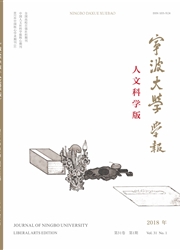
欢迎您!东篱公司
退出

 中文摘要:
中文摘要:
以《股市动态分析周刊》好淡指数做为我国投资者情绪指数,运用GARCH模型,对我国投资者情绪波动性和股市收益关系进行实证分析。结果表明:我国投资者情绪指数存在ARCH效应,且对股市收益具有“溢出效应”;投资者情绪指数未来预期的时间长度应以月度为宜。
 英文摘要:
英文摘要:
This paper makes an empirical analysis on investor sentiment volatility regarding the Bull/Bear Index in Stock Market Trend Anaiysis Weekly as investor sentiment index, and GARCH model is applied to this study for testing investor sentiment volatility and stock market return in China. The result shows that the medium term Bull/Bear index levels has significant ARCH effect. We also find that there are significant spillover effects between investor sentiment volatility and stock market return, and itis appropriate to choose one month as the proper time span of investor sentiment index.
 同期刊论文项目
同期刊论文项目
 同项目期刊论文
同项目期刊论文
 期刊信息
期刊信息
